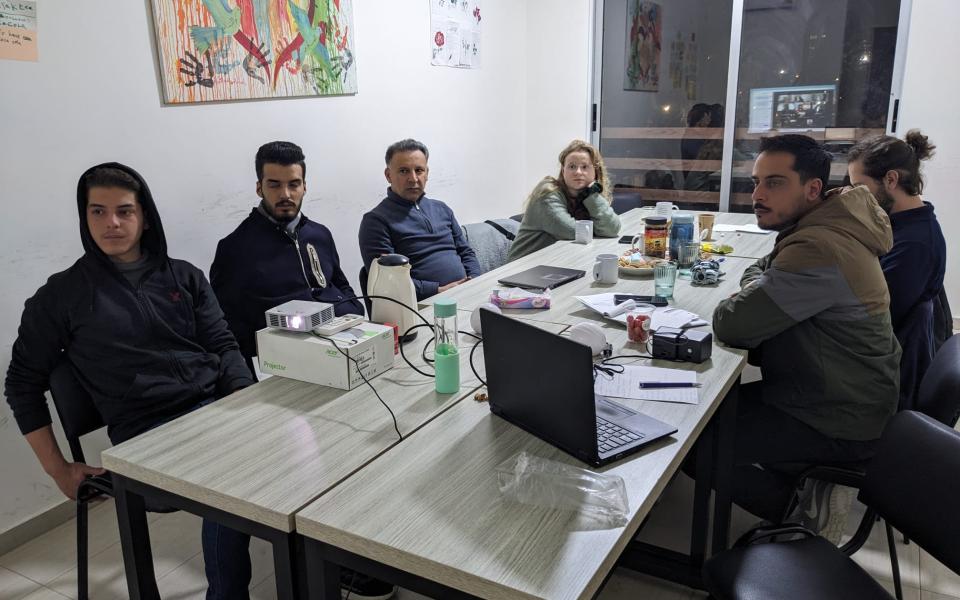
Violence is a complex and multifaceted phenomenon that encompasses a range of destructive behaviors causing physical, emotional, or psychological harm.
It can manifest in various forms, including physical aggression, verbal abuse, or systemic oppression. Addressing the root causes of violence often involves understanding the interplay of social, economic, and cultural factors.
One approach to countering violence is to see it as an epidemiological health problem. Like physical illnesses, violence is transmitted more quickly in specific contexts.
Thus, one option to address violence in a preventive sense is to treat it as a health problem.
Together with Karen Volker, Director of Partnership and Violence Prevention of the United Religions Initiative, we were able to discuss this topic and share the personal experiences of the participants.
Violence can be passed on through various factors. Through media, in the family context, or through the social environment such as school. Physical and psychological violence can be experienced first-hand, as well as indirectly through observing the use of violence against others.
People are differently resilient to violence. Not every person who is exposed to violence becomes violent themselves, but the prevalence is significantly higher.
How can we counter this vicious circle of violence with the health approach?
When a person feels socially excluded, this can be detected in the same areas of the brain as physical pain. This can make them more likely to commit violence or join movements that glorify violence. This is where resilience work must begin.
It is particularly crucial to implement preventive measures to this neurological changes at the micro level, within the social fabric. In this context, religious leaders can play a pivotal role in fostering understanding, promoting tolerance, and shaping community values to contribute to the prevention of violence.
Addressing the vicious cycle of violence through a health approach involves a comprehensive strategy aimed at tackling the underlying causes of violence and promoting the overall health and well-being of society. Here are some key approaches:
- Prevention through Education and Awareness: A crucial focus lies in educating individuals about alternative conflict resolution, non-violent communication, and the consequences of violence. Educational programs can raise awareness and impart preventive strategies.
- Health Services and Psychosocial Support: Providing easily accessible health services and psychosocial support can assist victims in coping with traumatic experiences. Concurrently, preventive measures can be promoted by enhancing mental health.
- Social Justice and Equality: A health-oriented approach also necessitates addressing injustices and promoting equality of opportunities. Social and economic inequalities are often linked to violence, and measures to improve these structures can contribute to violence reduction.
- Early Intervention and Rehabilitation: Early intervention at signs of violence and the provision of rehabilitation programs for perpetrators can help break the cycle of violence and promote the integration of individuals into society.
- Community Empowerment: Strengthening communities can reinforce social bonds and create supportive networks. Community-based programs can foster understanding and collaboration within society.
A health approach to violence prevention requires comprehensive collaboration between governments, communities, educational institutions, and health services to effect sustainable changes and promote a healthy, violence-free society.
Watch the video recording of the training here
